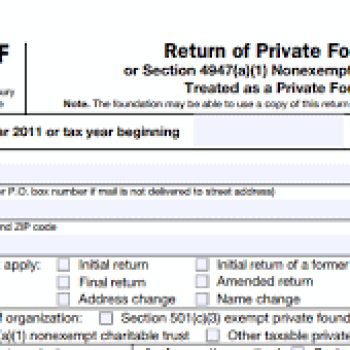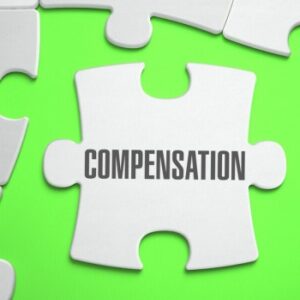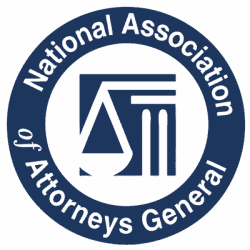Paying compensation to directors of tax exempt private foundations can be a delicate matter, especially for relatively modest family foundations. Most foundation managers are aware that such compensation is generally permissible under the Internal Revenue Code, as long as the compensation is not excessive and the services being provided are necessary to carrying out the exempt purposes of the foundation. Prudent managers may procure compensation studies which compile and analyze compensation data for comparable services and entities. In family foundations with small boards, it is often desirable to appoint an independent external “compensation committee” to evaluate such data and make compensation recommendations to the board of directors.
Clients new to the world of private foundations (including clients who suddenly find themselves at the helm of family foundations) are often unsure of how to compensate directors, and if it is even legally permissible. This is not surprising, since, at first glance, the law in this area is puzzling, and several different pieces of the law must be fit together to reveal the full picture.
Among the many peculiar and non-intuitive features of the tax rules for private foundations is that, in the first instance, compensation by a foundation to a “disqualified person” is categorized as an impermissible act of “self-dealing.” (Foundation directors, their spouses, and their family members – among others – all fall within the law’s definition of a “disqualified person.”) However, as with many areas of tax-exempt organizations law, this blanket prohibition is followed by a list of exceptions. The key exception regarding compensation provides that payment of compensation by a private foundation to a disqualified person will not be considered impermissible self-dealing as long as the compensation is not excessive and the compensation is for “personal services which are reasonable and necessary to carrying out the exempt purpose of the private foundation.”
“Personal services” is not a defined term in the statute, but the Treasury Regulations include as examples of personal services: legal services, investment management services, and general banking services. Further, the term is generally understood to include professional and managerial services rendered by a disqualified person in her capacity as an officer, director, trustee, or executive director of the private foundation. Much ink has been spilled by others attempting to define “personal services,” and there is a hefty pile of private letter rulings devoted to the topic. This is understandable since all self-dealing transactions, including impermissible compensation to a director, can result in excise taxes imposed on the self-dealer (e.g. an improperly compensated director), and in certain circumstances, on the other foundation managers and on the foundation itself. One reason for this onoing uncertainty is that, in the leading case on this issue, Madden v. Commissioner of Internal Revenue, T.C. Memo 1997-395, 74 T.C.M. 440 (1997), the tax court held that the term “personal services” should be construed narrowly and that personal services are “essentially professional and managerial in nature.” This of course begs the question: what counts as “professional and managerial?” That is a question for another day. For current purposes, however, it is clear that non-excessive compensation to a director for her duties as a director falls squarely within the exception, and is therefore not “self-dealing.”
This background helps illuminate the odd way in which Form 990-PF is structured with respect to reporting on director compensation. If a private foundation does compensate, or reimburse expenses of, a director or other disqualified person, the organization must answer “Yes” to question 1a(4) of Part VII-B on its Form 990-PF. That question is straight-forward enough. It simply asks: did the foundation “pay compensation to, or pay or reimburse the expenses of, a disqualified person?”
 Unfortunately, the crucial follow-up question “1b” is not nearly as straight-forward. In my practice, I have seen that even experienced preparers will sometimes answer it incorrectly or simply leave it blank. The awkwardly worded question, which cries out for an English teacher’s red pen, asks: “If any answer is “Yes” to 1a(1)-(6), did any of the acts fail to qualify under the exceptions described in Regulations…?” Unless a foundation is intentionally disclosing impermissible activity and including a check to the IRS for excise taxes, the correct answer to this question should be “no”. By answering “no,” a foundation informs the IRS that “yes” – the compensation (or other transaction) is within the exceptions to self-dealing described in the Treasury Regulations, and therefore is permissible and not subject to excise taxes.
Unfortunately, the crucial follow-up question “1b” is not nearly as straight-forward. In my practice, I have seen that even experienced preparers will sometimes answer it incorrectly or simply leave it blank. The awkwardly worded question, which cries out for an English teacher’s red pen, asks: “If any answer is “Yes” to 1a(1)-(6), did any of the acts fail to qualify under the exceptions described in Regulations…?” Unless a foundation is intentionally disclosing impermissible activity and including a check to the IRS for excise taxes, the correct answer to this question should be “no”. By answering “no,” a foundation informs the IRS that “yes” – the compensation (or other transaction) is within the exceptions to self-dealing described in the Treasury Regulations, and therefore is permissible and not subject to excise taxes.
Perhaps what trips up preparers and foundation officials is the section heading for Part VII-B: “Statements Regarding Activities for Which Form 4720 May Be Required.” As most informed foundation managers know, Form 4720 is not a form you want to file. Form 4720 is used to calculate and pay excise taxes for activities that are disallowed under the Internal Revenue Code, and private foundations almost never have a reason to file them voluntarily. Since Part VII-B, Question 1b refers to the “exceptions” to “self-dealing,” preparers and managers may be eager to answer this question “yes” with the hope that doing so signals “yes, these activities were exceptions to self-dealing.” However, because of the clunky wording of the question, the answer should almost always be “no.” A private foundation intending to answer this question “yes” likely has bigger problems than bad grammar.
- Nancy Israelhttps://perlmanandperlman.com/author/nancy/













